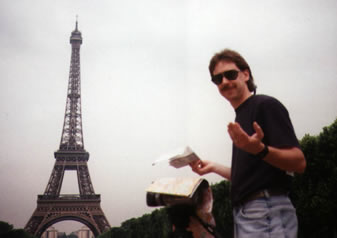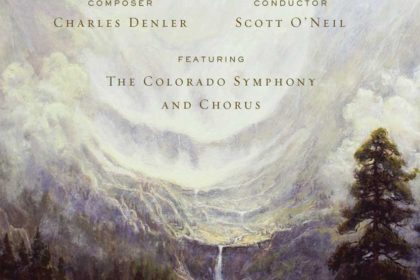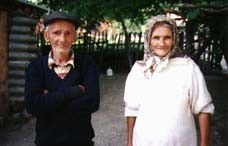“Bryan, come here and take our picture.”
Border crossings between Hungary and Romania are supposed to take a long time. It takes awhile to search a car and interrogate its driver. They never know if they’ll find forbidden guns, pornography, or bibles.
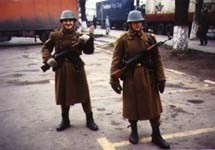
This time, however, the border guards wanted photos taken of us arm and arm with them, victory signs extended, and shouting “Libertate” (liberty). Instead of confiscating contraband they gave us tri-color ribbons and even flags with the communist symbol cut from the center.
It was New Year’s eve – only a week earlier Nicolae and Elena Ceaucescu, the dreaded dictator and his wife, were executed. The man and the system that ruled with absolute authority were suddenly eliminated.
In the town of Oradea, our convoy of trucks with relief supplies was warmly greeted. One man came up to us with a big smile talking like we were old friends. Unfortunately, we had no clue what he said. For the first time, Romanians were allowed to associate with foreigners and many of them wasted no time in exercising this newfound freedom.
In Bucharest, we stopped by the house of an 88 year-old man named Arthur. He was a printer by trade and spent seven years in prison for printing bibles. As soon as he was released he printed some more! As I sat in the dining room of his freezing cold house smaller than my garage I realized this man was one of those you only read about. He, more than most, knew what “libertate” really was about.
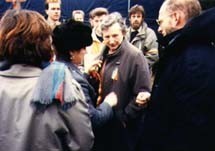
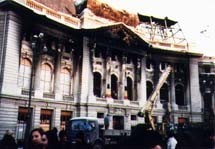
As I sit at our edit suite I look up at my Romanian flag hanging on the wall with the center cut out and remember that cold December nine years ago. I can still hear the guards with their victory chants. I can still see people greeting us like long lost friends. And I can still remember Arthur telling the story of life in prison.
